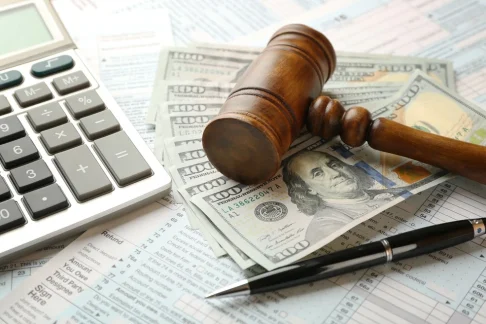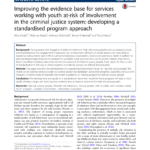Criminal Record Clear: A Fresh Start?
Ever felt the weight of past mistakes holding you back? Like a shadow clinging to your heels, a criminal record can impact your job prospects, housing options, and even personal relationships. But what if you could lift that shadow? What if you could, in essence, get a criminal record clear? Well, you’re in the right place. This article will delve into the intricacies of clearing your criminal record, exploring what it means, how it works, and the potential benefits it can offer. Think of it as a guide to navigating the often-confusing world of second chances.
What Does a Criminal Record Clear Mean?
So, what exactly does it mean to have a criminal record clear? It’s a bit like hitting the “delete” button on a computer file, though perhaps not quite as straightforward. In reality, “clearing” your record doesn’t necessarily mean erasing every trace of past offenses. Instead, it generally involves making those offenses less accessible to the public and potential employers during background checks. It’s about giving individuals a fresh start and reducing the stigma associated with past mistakes.
Imagine applying for a job and having your past automatically disqualify you, even if you’ve turned your life around. That’s the harsh reality for many with criminal records. A criminal record clear, in its various forms, aims to mitigate this. It can involve sealing records, expungement, or setting aside convictions. Each of these processes differs slightly in its legal implications and the specific offenses it covers.
For instance, sealing a record typically hides it from public view but may still be accessible to law enforcement and certain government agencies. Think of it like putting a confidential file in a locked cabinet – it’s still there, but not easily accessible. Expungement, on the other hand, is more like shredding the file altogether, effectively erasing the conviction from your record in the eyes of the law. Setting aside a conviction is similar to expungement, but the record may still be viewed under certain circumstances.
The specific terminology and procedures for clearing a criminal record can vary significantly depending on your jurisdiction. What might be called “expungement” in one state could be referred to as “sealing” or “setting aside” in another. This legal patchwork can be confusing, so it’s crucial to understand the specific laws in your area. Moreover, not all offenses are eligible for clearance. Serious crimes like murder, certain sex offenses, and violent felonies are often excluded, even with the passage of time.
Beyond the legal technicalities, a criminal record clear carries a significant symbolic weight. It represents a societal acknowledgment that people can change and deserve a second chance. It allows individuals to move forward without the constant fear of their past haunting them. It unlocks opportunities that might otherwise be closed, from securing employment and housing to pursuing higher education. In essence, a criminal record clear isn’t just about legal technicalities; it’s about restoring hope and empowering individuals to rebuild their lives. Isn’t that what second chances are all about?
Criminal Record Clear: A Fresh Start
A criminal record can feel like a ball and chain, holding you back from opportunities you deserve. But what if you could break free? What if you could unlock a future unburdened by past mistakes? A criminal record clear (also known as expungement or sealing) can offer just that – a chance to rewrite your story. It’s a legal process that allows you to essentially erase certain arrests and convictions from your record, giving you a clean slate in the eyes of the law. This article will delve into the benefits of a criminal record clear and guide you through what it can mean for your future.
Benefits of a Criminal Record Clear
The advantages of a clear criminal record are numerous and far-reaching, impacting nearly every aspect of your life. Imagine applying for a job without the fear of your past holding you back, or securing a loan without the weight of a previous conviction weighing you down. A clean record can open doors you may have thought were forever closed. It’s like getting a key to a whole new set of possibilities. It allows you to compete on a level playing field, free from the stigma often associated with a criminal history. From employment and housing to education and licensing, the benefits are truly transformative.
Employment Opportunities
Perhaps the most significant benefit of a criminal record clear is the boost it gives to your employment prospects. How many times have you seen “background check required” on a job application and felt a pang of dread? A criminal record can be a major hurdle in the job market, often leading to automatic disqualification, even for minor offenses. With a clear record, you can apply for jobs with renewed confidence, knowing that your past won’t automatically disqualify you. Think about it: you’re no longer competing with one hand tied behind your back. You’re finally free to pursue your career goals without the shadow of your past looming over you.
Housing and Loans
Finding a place to call home can be incredibly challenging with a criminal record. Many landlords conduct background checks, and a criminal history can be an instant barrier to securing a lease. Similarly, securing a loan, whether for a car, a house, or even starting a business, can be nearly impossible with certain convictions on your record. A criminal record clear can remove these obstacles, allowing you to access housing and financial resources more readily. It’s like having a weight lifted off your shoulders, enabling you to build a stable and secure future for yourself and your family. Imagine finally being able to qualify for that mortgage, or rent that apartment in the neighborhood you’ve always dreamed of. That’s the power of a clean slate.
Education and Licensing
A criminal record can also limit your access to education and professional licensing. Certain convictions can disqualify you from receiving financial aid, attending specific schools, or pursuing certain careers that require professional licenses. A criminal record clear can pave the way for educational advancement and career opportunities that may have seemed unattainable. Think about pursuing that nursing degree you’ve always wanted, or finally obtaining that contractor’s license to start your own business. A clean record can make these dreams a reality. It’s like removing a roadblock on your path to personal and professional growth, allowing you to reach your full potential. Who knows? Maybe a cleared record will be the catalyst you need to finally pursue that passion you’ve always held back. It’s time to invest in yourself and your future.
Criminal Record Clear: A Fresh Start?
A criminal record can feel like a heavy anchor, weighing you down and holding you back from opportunities. But what if you could cut that anchor loose? What if you could pursue a job, rent an apartment, or simply move forward without the constant shadow of your past hanging over you? That’s the promise of a criminal record clear, sometimes referred to as expungement or sealing. This process can offer a fresh start, but it’s crucial to understand what it truly means and what limitations still exist. This article dives into the complexities of having your criminal record cleared, exploring its impact on employment, housing, and your overall future.
Criminal Record Clearing and Employment
Even with a cleared record, certain employers in specific fields may still have access to some information. Think of it like this: erasing a whiteboard doesn’t mean the marker’s ink magically disappears. Traces might remain if you look closely enough. Similarly, while a cleared record won’t show up on standard background checks, some employers, particularly those in sensitive fields like healthcare, education, finance, or government, have access to more comprehensive databases. These databases might contain records that aren’t accessible to the public or standard background check companies. Imagine applying for a job as a teacher. While your shoplifting charge from years ago might be expunged, the school district might still uncover it during their more rigorous vetting process. So, while clearing your record dramatically improves your chances, it’s not a foolproof guarantee of complete invisibility.
Furthermore, “cleared” doesn’t always mean “forgotten.” Let’s say you’re applying for a job requiring a security clearance. The government’s investigation might dig deeper than a typical employer and unearth past indiscretions, even if they’re expunged. It’s a bit like an iceberg: what’s visible on the surface (your cleared record) is only a small part of the whole story. The larger, submerged portion (your past) can still be discovered with enough digging. This also applies to certain licensing boards for professions like law enforcement or medicine.
Now, you might be asking, “What’s the point then?” Don’t get discouraged! Clearing your record significantly increases your employment prospects. Most employers won’t have access to those deeper databases. For the vast majority of jobs, a clear record levels the playing field and gives you a fighting chance. Think of it as closing a door on your past, even if a few tiny cracks remain. It’s a fresh start, a clean slate for most intents and purposes.
Transparency can also be your best ally. If you’re concerned about a past offense affecting your job prospects, consider proactively addressing it with a potential employer. This shows honesty and initiative, and it allows you to frame the narrative. You’ve learned from your mistakes, haven’t you? Sharing your story demonstrates growth and responsibility. Of course, you’ll want to exercise caution and discretion, choosing the right moment and the right way to broach the subject. But in some cases, this proactive approach can be more effective than hoping your past remains entirely hidden.
Finally, research your state’s specific laws regarding expungement and employer access. Regulations vary widely, so understanding the nuances of your local laws is essential. A qualified attorney specializing in criminal record clearing can provide tailored advice and guidance. Don’t navigate this complex process alone. Seek professional help to ensure you’re taking the right steps toward a brighter future. Remember, a criminal record clear isn’t a magic wand, but it’s a powerful tool for rebuilding your life and opening doors to new opportunities.
How to Clear Your Criminal Record: A Comprehensive Guide
Navigating the complexities of clearing a criminal record can feel like traversing a legal labyrinth. We’re here to shed light on this often-misunderstood process, offering a clear path to understanding what “criminal record clear” actually entails, dispelling common myths, and guiding you through the steps involved. Think of it as a roadmap to a fresh start.
Common Misconceptions About Criminal Record Clearing
Clearing your record doesn’t erase the offense entirely from all databases, but limits its visibility. It’s more like concealing a scar than completely erasing it. Some databases, particularly those used by law enforcement and national security agencies, may still retain the record. However, for most background checks, such as those conducted by employers or landlords, the offense will be hidden, effectively giving you a clean slate in many aspects of your life. Why is this important? Because it opens doors to opportunities that might otherwise be closed.
Eligibility for Record Clearing
Not all offenses are eligible for expungement or sealing. The specific criteria vary by state and the nature of the crime. Generally, less serious offenses like misdemeanors and certain non-violent felonies are more likely to be eligible after a certain period of time has passed without further legal trouble. Imagine it like a waiting period – you demonstrate good behavior and, after a set time, you can apply for a clean slate. However, serious violent crimes, sex offenses, and certain felonies may be permanently ineligible for expungement.
The Process of Clearing Your Record
Clearing your record involves a legal process, often requiring paperwork, court appearances, and potentially legal representation. It’s not a DIY project you can knock out on a weekend. You’ll need to gather necessary documents, file petitions with the court, and potentially attend hearings. Think of it as a legal puzzle – you need all the right pieces in the right place to complete the picture. Seeking guidance from an experienced attorney can significantly simplify this complex process, ensuring you meet all requirements and avoid costly missteps.
Benefits of a Clear Record
The benefits of a clear record extend far beyond just peace of mind. It can significantly improve your chances of securing employment, housing, and even educational opportunities. Imagine the doors that can open when your past no longer holds you back. A clean record can also make it easier to obtain professional licenses, adopt a child, or even travel to certain countries. It’s a powerful tool for rebuilding your life and achieving your goals.
The Waiting Period After Record Clearing
Even after your record is cleared, it’s essential to understand that the waiting period doesn’t disappear from existence. The information is simply hidden from most background checks. So, while you can honestly answer “no” when asked if you have a criminal record on most applications, there may be exceptions. For instance, certain government jobs and high-security clearances may still require disclosure. Think of it like a confidential file – it’s still there, but access is restricted. Understanding these nuances is crucial to avoid future complications.
Common Mistakes to Avoid
One of the most common mistakes people make is assuming their record is automatically cleared after a certain time. This is rarely the case. You must actively petition the court for expungement or sealing. Another mistake is failing to seek legal counsel. Navigating the legal complexities alone can be a recipe for disaster. It’s like trying to perform surgery on yourself – you might do more harm than good. A qualified attorney can provide expert guidance, ensuring you navigate the process correctly and maximize your chances of success.
Maintaining a Clean Record After Expungement
After successfully clearing your record, maintaining a clean slate becomes paramount. This means avoiding any further involvement with the legal system. It’s like having a second chance – don’t squander it. Remember the effort and resources you invested in clearing your record and use it as motivation to make positive choices. Staying on the right side of the law is crucial for preserving the benefits of your expungement and building a brighter future. What better way to celebrate a fresh start than by continuing on a positive path?


